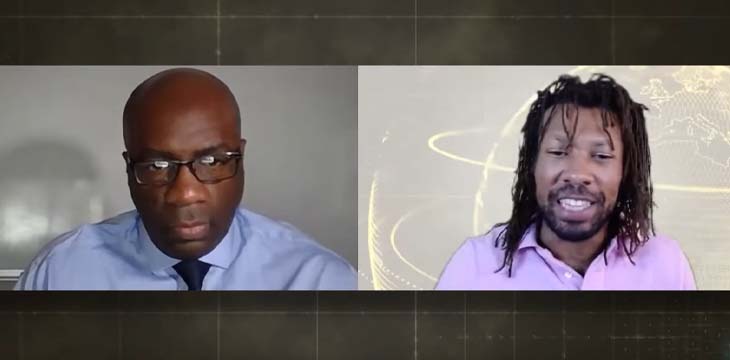|
Getting your Trinity Audio player ready...
|
Institutional investors have become critical to the success of any digital currency project, and Bitcoin SV is no different. However, these investors demand cutting-edge tools and services before they can dive into the bold new world of digital assets. TrustChains LLC is one of the companies targeting this group of investors, building tools that give them the confidence to try their hand with Bitcoin.
The company’s global head of markets, Jermaine Harmon, joined More Than Money to discuss why they chose the BSV blockchain and how they are making it possible for strictly regulated professional investors to join Bitcoin.
Harmon’s background is in the foreign exchange world, having started in clearing and settlements before getting into electronic trading, he told host Patrick Thompson. His first brush with digital currencies was when he worked with a company that was building an exchange for the Latin American market. When he observed the advent of institutional players in the industry, he decided to try his hand and has been hooked ever since.
Harmon believes that the era of institutional interest is just starting. One of the things that attract these big players is the volatility in the sector, he revealed. With other markets, such as foreign exchange, the volatility is much lower, and so are the profits. Digital currencies allow these firms, which have a heavy war chest, to leverage their experience to make a lot more profit.
But why have these players taken this long to jump into Bitcoin? Harmon believes it’s down to the lack of tools that give them confidence in their security.
“You can’t have millions of dollars sitting in an exchange offshore somewhere self-custodied by the exchange, where you don’t have access to the private keys, and the exchange can shut down and walk away with all your assets,” he said.
Once institutional-grade custody solutions are in place, we will see mass adoption by these players globally, Harmon believes.
This is what TrustChains is out to provide to the digital assets sector. The firm is building a world-class custody solution that will change how clients store their digital assets.
Harmon further debunked the myth of self-custody by exchanges. This, he said, is a lie exchanges have been peddling to retail users—something institutional players would never buy into.
“That [self-custody] is not custody because the exchange is not a qualified custodian who has a fiduciary duty to protect your assets. They can do whatever they want with that asset, and most of the time you don’t have any recourse if something bad happens, or even the insurance you need to protect that asset.”
Qualified custodians are strictly regulated and adhere to certain fiduciary duties. This extends even to the infrastructure, operational procedures, insurance, and more, unlike self-custody platforms.
One of the most important talking points in custody is cold vs. hot wallets. For custodians, the use of cold wallets, which are not connected to the Internet and are more secure, is critical as it gives the assets an extra layer of security.
However, as Harmon revealed, there has to be a certain balance between the two. In the digital asset space, clients have to trade and move around their assets to make money. Companies like TrustChains are working on solutions that allow their clients to easily move their assets while keeping them very secure.
As a financial industry veteran, Harmon has experienced most of the challenges that affect players in this sector. As he explained on More Than Money, one of the biggest challenges is trust. Investors are wary of using so many products as they are not certain if there’s someone pulling the strings and manipulating the system. Blockchain is the only technology that can bring a level of trust never seen before. Its immutability and transparency allow investors to track and audit every transaction and is provably fair.
“To that point, there’s only one blockchain that can really do that [provide trust], and that’s scalable enough to do that, and that’s BSV. You can put everything on-chain, every single quote, and it’s commercially feasible to do that, it’s scalable to do that.”
TrustChains conducted a fair bit of research into different blockchain networks before settling on Bitcoin SV, Harmon revealed. It’s now building a qualified custodian on the BSV blockchain, the first, according to Harmon, that will be multi-asset, supporting Bitcoin and other digital currencies as well as every other single asset.
The firm has also been working with James Belding and his team at Tokenized, Harmon went on. Together, they are working to enable TrustChains users to tokenize the assets in their custody and use the tokens in other financial applications.
There’s no question that Bitcoin SV is only getting bigger with time. Harmon believes that we must focus on building products and applications that solve existing challenges as a community. He acknowledged the excellent traction that games like CryptoFights have brought to BSV. However, we must expand beyond gaming and build applications targeting financial services and other various key sectors.
“You’ve got to solve a problem and solve it using the BSV blockchain. For us, we have seen the problem as the lack of a true qualified custodian for the digital asset space.”

 02-23-2026
02-23-2026 




